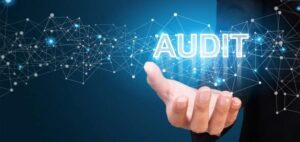1. Control Environment
A sound internal control system lays the foundation for internal audit that is more inclined towards focusing on the significant audit matters instead of getting its attention diverted towards less significant areas. The first step in establishing a better control environment is the formulation of the organization\’s code of ethics. If ethical values and integrity are in the heart of organizational operations, the better will be the internal control environment. Furthermore, strong HR policies are also important for a better control environment. For example, hiring individuals who are members of accountancy bodies that are actively involved in uplifting ethical values, arranging the training for employees will prove beneficial in creating a sound internal control environment across the organization. Furthermore, a comprehensively laid down organizational structure with a clear definition of roles and responsibilities aids well to sound internal control environment as well. In concluding, from an internal audit perspective, lesser resources in the form of time and money for example will be required by Internal Audit Department in auditing the organization with a sound internal control environment.
2. Risk Assessment Procedures
Risk assessment procedures play important role in the determination of control risk of the organization. Working on the conventional risk equation (Audit Risk = Inherent Risk x Control Risk x Detection Risk) is a usual norm for audit teams during the planning stage. Internal Auditors usually increase the scope of audit and extent of substantive procedures when the control risk is evaluated to be high.
3. Control Risk Indicators
Internal Auditors need to carefully examine the performance of those organizational employees who are assigned with the duty to monitor the overall control environment of the organization from time to time and report the deficiencies to those charged with governance. Internal Auditors will also have to evaluate the response of those charged with governance in implementing the corrective measures. Well-established control risk monitoring guidelines of organizations affect the scope of internal audit work to be performed.
4. Effectiveness of Internal Controls:
Internal Auditors need to evaluate the effectiveness of internal controls in the organization they are auditing. This can be achieved by giving due consideration to the two major components of internal control systems i.e. Policies and Compliance. An organization may have well-established internal control policies but that doesn’t allow internal auditors to reduce the scope of work if there are compliance problems regarding the internal control policies. For example, if there is a clearly mentioned policy regarding safeguarding the organization\’s confidential details using Passwords that are changed periodically and that too created by the combination of uppercase, lowercase, numeric and special characters, internal auditors will check the compliance of the policy, and raise flags, if the passwords are common phrases which are not changed after a stipulated timeframe, for example.
5. Data Analytics:
At the planning stage of audits, Data Analytics through comprehensive analyses will allow internal auditors to have a deeper understanding of a company and its surroundings which will consequently nourish their risk assessment procedures and enable the internal auditors to adjust their audit plan accordingly. While performing audits, quite a lot of data has to be analyzed to gain conclusive evidence prior to giving an audit opinion. Data Analytics is a hot topic of discussion in the current corporate world and going forward, it will have wide-ranging effects on the ways the Internal Audits will be approached in the future. It will not only improve audit sampling after comprehensively analyzing the whole scenario surrounding the nature of business in which the auditee operates, but will also allow the trends and norms that might have been lost in a sea of data previously, to be discovered using Data Analytics. Furthermore, it will allow operational or financial predictions about potentially risky transactions or events more accurately than before thus driving the attention of auditors more towards significant audit matters.






